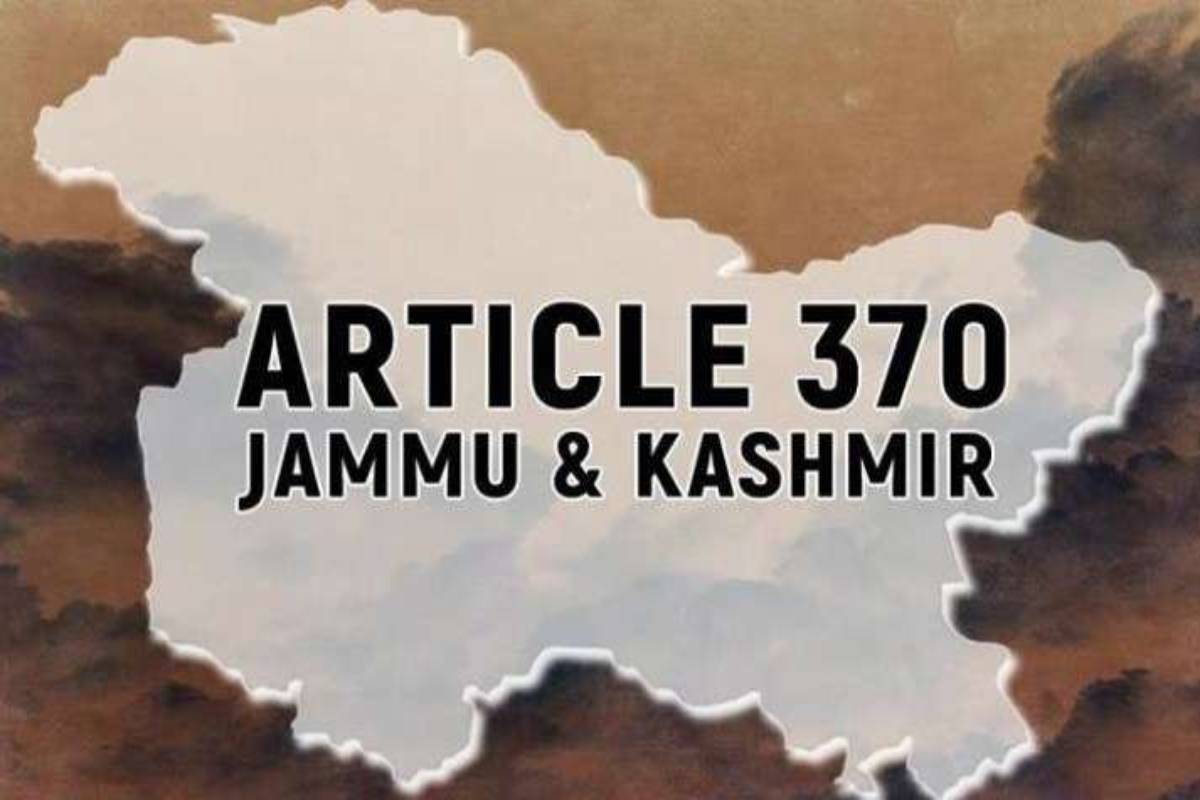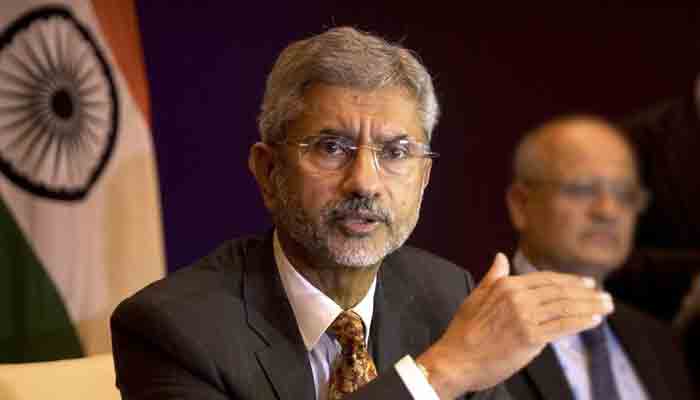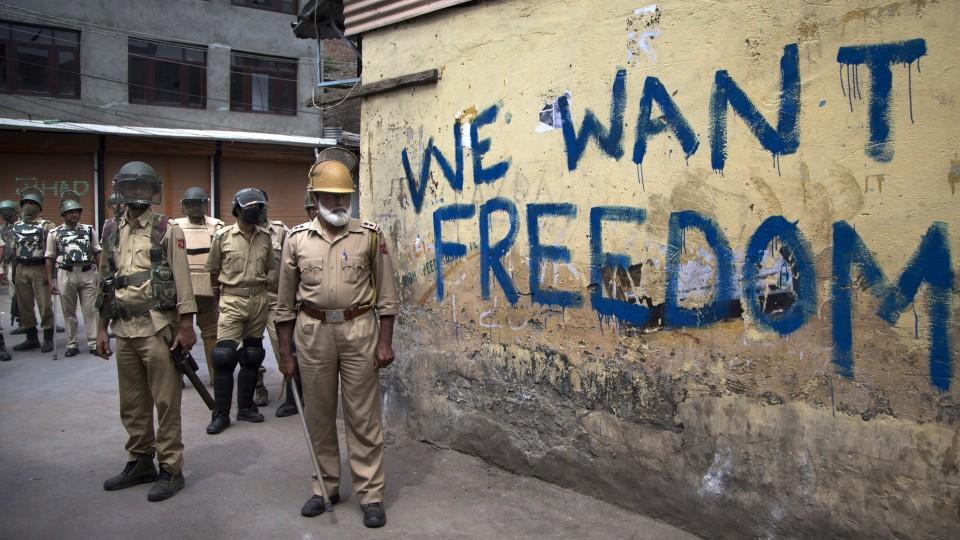Jaishankar Declares POK As ‘Stolen Kashmir’ – A Fight For Restoration
With Article 370 revoked and democratic stability in Jammu and Kashmir, India now sets its sights on POK. Will Pakistan respond?

External Affairs Minister (EAM) S. Jaishankar reasserted his position on Pakistan-occupied Kashmir (POK), stating that the sole problem in the conflict in Kashmir is the restoration of the territory that Pakistan has illegally occupied. Jaishankar spoke about India’s achievements in Jammu and Kashmir, such as the abolition of Article 370, economic development, and successful democratic polls, while addressing a gathering at London’s Chatham House.
The Abrogation of Article 370 and Its Impacts
Jaishankar emphasized the Indian government’s attempts to bring stability, growth, and social justice to the Union Territory of Jammu and Kashmir. The territory became a part of India’s legal and political system with the historic repeal of Article 370 in August 2019. Since then, the region has made substantial progress in governance, infrastructure, and investment.
Revoking Article 370 revoked the special status of Jammu and Kashmir and allowed it to be ruled like any other Indian state or Union Territory. Internationally, it was responded to with conflicting emotions, while domestically it found a general welcome as a step towards national development and integration.
Jaishankar underlined that with the triumphant return of development projects and the impressive voter turnout during the recent elections, India had solved most of the problems haunting Jammu and Kashmir for decades. Nevertheless, he noted that the return of POK is still the only pending issue.

Jaishankar’s assertion: “Waiting for the Return of Stolen Kashmir”
In response to a query about the problem of Kashmir, Jaishankar said:
“See, in Kashmir, we have addressed most of it. The abrogation of Article 370 was the first step. Then came the restoration of growth, economic activity, and social justice in Kashmir. Conducting elections with a very high turnout was another big step. The portion we are waiting for now is the recovery of the occupied portion of Kashmir, which Pakistan illegally occupies.”. After achieving that, I assure you that Kashmir will be fully settled.
This statement identifies India’s stated policy towards POK, which has been the same since 1947. India considers the region to be its own territory, illegally held by Pakistan after the first Indo-Pak war. In 1994, the Indian Parliament went so far as to adopt a resolution stating that POK is an integral part of India and that steps will be taken to recover it.
Historical Background: The Conflict Over POK
The area of Pakistan-occupied Kashmir came under the control of Pakistan during the Indo-Pakistan War in 1947-48. Following partition, tribal militias sponsored by Pakistan took over Kashmir, and Maharaja Hari Singh went to seek Indian help. In exchange, the Maharaja signed the Instrument of Accession, legally acceding Jammu and Kashmir to India.
The United Nations mediated a ceasefire in 1949, and as a result, the Line of Control (LoC) came into being, in effect bisecting the region. India has always asserted that the entire Jammu and Kashmir state, including POK, is a part of India by right. However, Pakistan has continued to reclaim the territory, leading to a number of conflicts, including as the Kargil conflict in 1999 and the wars in 1965 and 1971.
Jaishankar’s Past Comments on POK
Jaishankar has spoken several times about the POK question. On May 9, 2024, in a session with students of Delhi University’s Gargi College, he reaffirmed that India would recapture POK:

“Whatever we can say about POK is that there is a decision in Parliament. This country’s political parties are determined that POK, an integral part of India, should return to India. That is our national commitment.”
Likewise, on May 5 May 5, 2024, while addressing in Cuttack, Odisha, Jaishankar said that POK has always belonged to India and that people were “made to forget” about it. He criticized previous governments for not taking decisive action on this matter:
“POK has never departed the nation. It belongs to this nation. The Indian Parliament has passed a resolution declaring POK to be a part of India.”
Jaishankar further pointed out that during India’s initial years of independence, no firm action was taken to evict Pakistan from the area, which resulted in today’s scenario.
The Strategic Importance of POK
POK is of extreme strategic importance to India and Pakistan. It holds vital rivers such as the Indus, Jhelum, and Chenab, which form the core of both countries’ water resources. It is also shared with China, thereby giving it a geopolitical dimension.
China has been engaged in regional infrastructure projects, most prominently through the China-Pakistan Economic Corridor (CPEC), which runs through POK. India has always been against these projects, claiming that they are being constructed on illegally occupied territory.
Moreover, the POK has become a centre of several militant groups that have targeted India and is thus a serious security threat. India has accused Pakistan of harbouring and fostering terrorism in the region and making the issue more complex.
International Reactions to India’s Stand
Some other foreign sources have echoed India’s stand on POK, particularly those who think that terrorism funded by Pakistan is a threat. The majority of Western nations have come to recognize India’s status as a sovereign state to manage its domestic affairs, despite some first denouncing the repeal of Article 370.
Furthermore, international powers are now forced to focus on regional security due to the escalating tensions between India and Pakistan. While calling for talks, the US, EU, and other international powers have mostly refrained from interfering in India’s domestic affairs.
The Path Forward: What Lies Ahead?
Jaishankar’s assertive position indicates that India will keep pressing for the restoration of POK politically and diplomatically. Although a military solution is not possible, India may try to raise pressure on Pakistan by using international diplomacy, economic means, and regional alignments.
Some policy experts believe that India needs to concentrate more on consolidating Jammu and Kashmir’s social and economic development, serving as a model for POK residents. Suppose occupied Kashmir residents witness a stable and prosperous Jammu and Kashmir living under Indian rule. In that case, it might generate internal resentment against Pakistani rule and provide the grounds for a resolution in the future.

At Last
S. Jaishankar’s comments on POK reaffirm India’s traditional stance that the region is part of the country. With Article 370 abolished, economic development, and democratic change in Jammu and Kashmir, India has addressed most of its historical grievances. Restoring occupied Kashmir is the last item on the agenda to solve the Kashmir issue.
As geopolitics globally shift, India’s aggressive posture is sending one message: Pakistan-occupied Kashmir is not forgotten, and India will have it back. How that happens remains to be determined, but Jaishankar’s remark makes it clear the issue is hardly settled.




